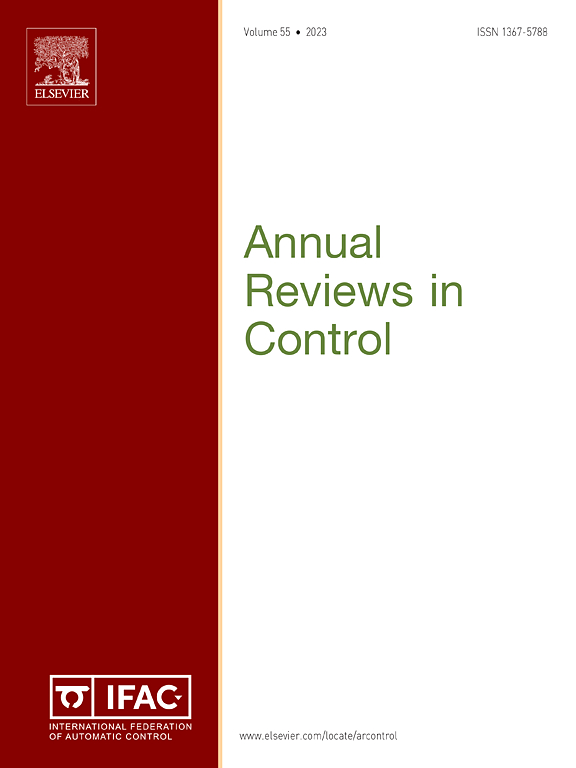促进可持续粮食系统的系统视角
IF 10.7
2区 计算机科学
Q1 AUTOMATION & CONTROL SYSTEMS
引用次数: 0
摘要
全球粮食系统处于一些最紧迫的现代社会挑战的中心:它们是一系列系统性问题的重要贡献者,包括健康问题和慢性病、温室气体排放和一般环境退化,以及医疗保健和经济日益沉重的财政负担。在这些复杂的系统中,最终可持续消费,即采用既健康又环保的饮食,起着关键作用。当代饮食模式的重大改变对于解决慢性病和公共卫生后果日益加重的负担以及不断升级的气候危机至关重要。实现这些转变需要决策者、消费者和科学界的协调行动,努力支持广告和政策工具的制定、实施和评估,以促进更健康和更可持续的饮食选择。然而,推动饮食行为的改变是一项复杂的挑战,受到各种异质影响的相互作用,包括生物、社会、文化、环境、政治和经济因素,而以既有效又合乎道德的方式验证所提出的方法的难度进一步复杂化。本远景文件提出了促进健康和环境友好型饮食的问题及其对环境可持续性的影响。特别地,它讨论了一种基于社会网络动态和社会干预的系统方法,说明了最近的发现,证明了影响策略在推动饮食变化方面的潜力。最后,强调了关键的科学挑战和新兴的研究机会。本文章由计算机程序翻译,如有差异,请以英文原文为准。
A systems perspective on promoting sustainable food systems
Global food systems are at the center of some of the most pressing modern societal challenges: They are significant contributors to a range of systemic issues, including health problems and chronic diseases, greenhouse gas emissions and general environmental degradation, and increasing financial burdens on healthcare and economies. Within these complex systems, final sustainable consumption, which refers to the adoption of diets that are both healthy and environmentally friendly, plays a critical role. Significant changes in contemporary dietary patterns are essential to address the rising burden of chronic diseases and public health outcomes and the escalating climate crisis. Achieving these shifts requires coordinated action from policymakers, consumers, and the scientific community in an effort to support the development, implementation, and evaluation of advertising and policy instruments that promote healthier and more sustainable dietary choices. However, driving changes in dietary behavior is a complex challenge, shaped by the interplay of heterogeneous influences, including biological, social, cultural, environmental, political, and economic factors, and further complicated by the difficulty of validating proposed approaches in ways that are both efficient and ethically sound. This vision paper presents the problem of promoting healthy and environmentally friendly diets and their implications for environmental sustainability. In particular, it discusses a systems approach based on social network dynamics and social interventions, illustrating recent findings that demonstrate the potential of influence strategies to drive dietary change. Finally, key scientific challenges and emerging research opportunities are highlighted.
求助全文
通过发布文献求助,成功后即可免费获取论文全文。
去求助
来源期刊

Annual Reviews in Control
工程技术-自动化与控制系统
CiteScore
19.00
自引率
2.10%
发文量
53
审稿时长
36 days
期刊介绍:
The field of Control is changing very fast now with technology-driven “societal grand challenges” and with the deployment of new digital technologies. The aim of Annual Reviews in Control is to provide comprehensive and visionary views of the field of Control, by publishing the following types of review articles:
Survey Article: Review papers on main methodologies or technical advances adding considerable technical value to the state of the art. Note that papers which purely rely on mechanistic searches and lack comprehensive analysis providing a clear contribution to the field will be rejected.
Vision Article: Cutting-edge and emerging topics with visionary perspective on the future of the field or how it will bridge multiple disciplines, and
Tutorial research Article: Fundamental guides for future studies.
 求助内容:
求助内容: 应助结果提醒方式:
应助结果提醒方式:


